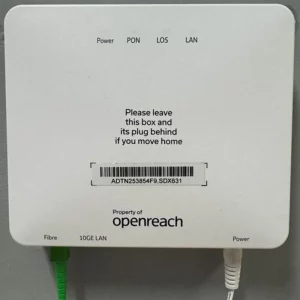Sponsored Links
Ofcom Begins the UK Net Neutrality and Internet Traffic Management Debate
Posted: 24th Jun, 2010 By: MarkJ
 Telecoms regulator Ofcom has today officially opened a debate into UK Net Neutrality (the principal of treating all internet traffic as equal), and the Traffic Management measures operated by mobile operators and broadband ISPs around the country, with its launch of a new discussion paper on the subject.
Telecoms regulator Ofcom has today officially opened a debate into UK Net Neutrality (the principal of treating all internet traffic as equal), and the Traffic Management measures operated by mobile operators and broadband ISPs around the country, with its launch of a new discussion paper on the subject.Many ISPs employ Traffic Management and Shaping as a means to balance the performance of their networks so that the majority of their customers are not unfairly affected by a minority of heavy users. This is often done by restricting data traffic (bandwidth or speed if you prefer) to busy services like P2P (File Sharing). Many ISPs prefer this to raising prices or being more realistic about their usage allowances.
However some ISPs, such as BT Retail, would like to see even more extensive use of such measures against popular video streaming services. Several internet providers have even gone so far as to suggest that online video sites (e.g. BBC iPlayer, YouTube), Skype (VoIP) and even search engines (Google) should be forced to pay ISPs if they want their content to be given priority over the network (here, here and here).
This has also led to significant concern that network operators and ISPs could engage in anti-competitive behaviour and suppress the quality of content from popular services. Not giving priority to a VoIP service like Skype or internet searches could have adverse effects and even make some services unusable.
Ofcom Chief Executive, Ed Richards, said:
"New EU rules give regulators a clear responsibility to address the emerging issues around traffic management. The question is how Ofcom uses these and existing powers to further the interests of consumers, while supporting vibrant, innovative content production and network deployment.
The internet is playing an increasingly central role in the lives of citizens, consumers and industry. It provides access to an ever growing range of content, applications and services that we have come to both expect and depend on. How this access is controlled by ISPs affects us all and is of wide reaching significance.
At the heart of this discussion is how to ensure that traffic management practices are transparent and how to ensure that traffic management is not used for anti-competitive discrimination."
"New EU rules give regulators a clear responsibility to address the emerging issues around traffic management. The question is how Ofcom uses these and existing powers to further the interests of consumers, while supporting vibrant, innovative content production and network deployment.
The internet is playing an increasingly central role in the lives of citizens, consumers and industry. It provides access to an ever growing range of content, applications and services that we have come to both expect and depend on. How this access is controlled by ISPs affects us all and is of wide reaching significance.
At the heart of this discussion is how to ensure that traffic management practices are transparent and how to ensure that traffic management is not used for anti-competitive discrimination."
To place blame upon the people who produce content, those who actually make the internet a fluid and interesting place to visit and are the reason we all want access to it, is potentially very risky for an ISP. However if today's other news showed us anything (Record Breaking UK Broadband Internet Traffic During England v Slovenia Match) it's that keeping up with modern demand can be very costly.
Part of the problem is that some ISPs have simply been unrealistic in what they advertise (i.e. "unlimited") and the prices they charge for that. We do expect that there will need to be some agreements between major content producers and ISPs to help balance the load, but what we don't want to see is ISPs restricting access to all forms of content except a handful who pay them.
Ofcom appears to agree that a line has to be drawn somewhere, to protect the internet and give evolving content a chance to flourish. At the very least it could and probably will require broadband ISPs to be more transparent with their Traffic Management practices. However that alone is unlikely to solve the underlying concerns.
The regulator also has existing competition powers that may be relevant and will gain some support from amended EU Telecoms rules that will be transposed into UK law next year. In the meantime Ofcom's discussion paper will be open for feedback until 9th September.
Ofcom's Net Neutrality Discussion Paper:
http://www.ofcom.org.uk/consult/condocs/net-neutrality/
Search ISP News
Search ISP Listings
Search ISP Reviews
Latest UK ISP News








Cheap BIG ISPs for 100Mbps+
150,000+ Customers | View More ISPs
Cheapest ISPs for 100Mbps+
Modest Availability | View More ISPs
Latest UK ISP News
Helpful ISP Guides and Tips
Sponsored Links
The Top 15 Category Tags
- FTTP (6843)
- BT (3900)
- Politics (3093)
- Business (2789)
- Openreach (2679)
- Building Digital UK (2522)
- Mobile Broadband (2495)
- FTTC (2147)
- Statistics (2143)
- 4G (2110)
- Virgin Media (2038)
- Ofcom Regulation (1788)
- 5G (1753)
- Fibre Optic (1609)
- Wireless Internet (1602)
Sponsored
Copyright © 1999 to Present - ISPreview.co.uk - All Rights Reserved - Terms , Privacy and Cookie Policy , Links , Website Rules































